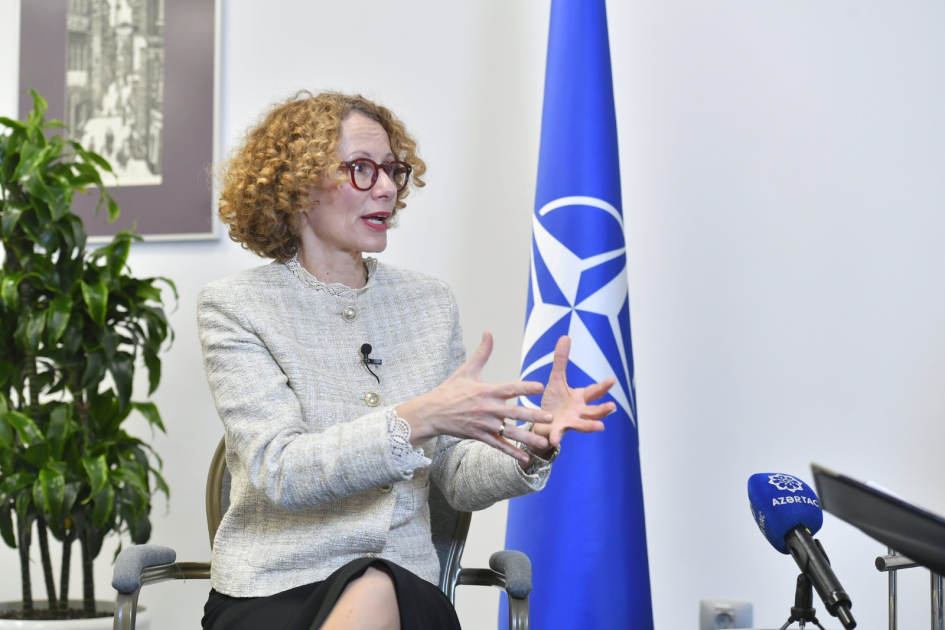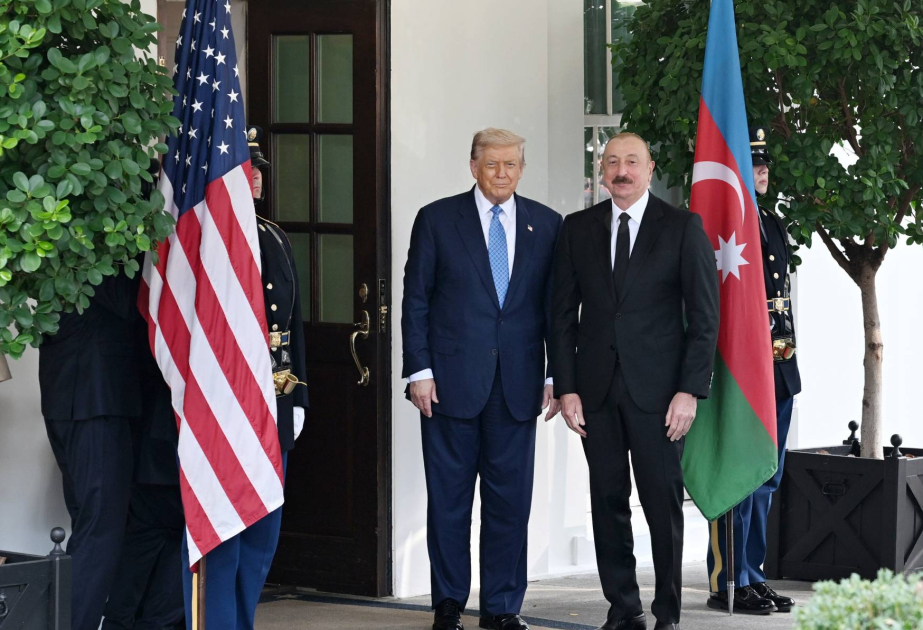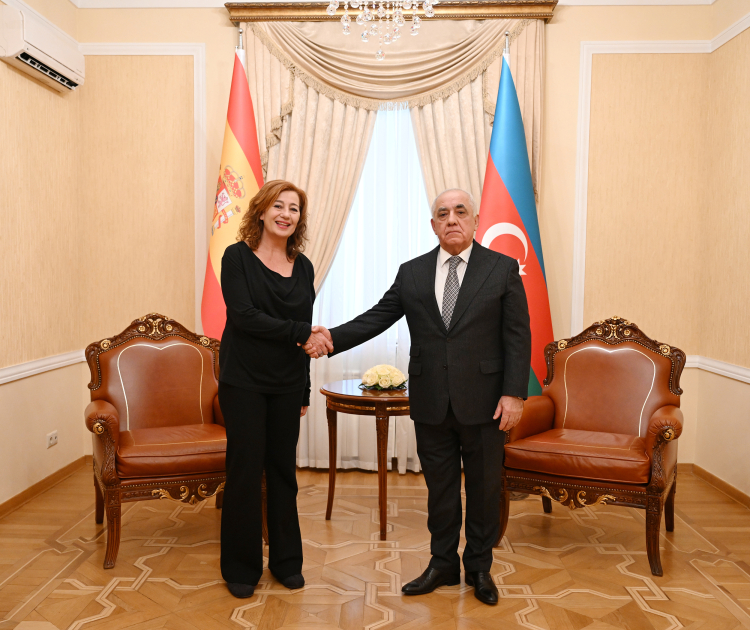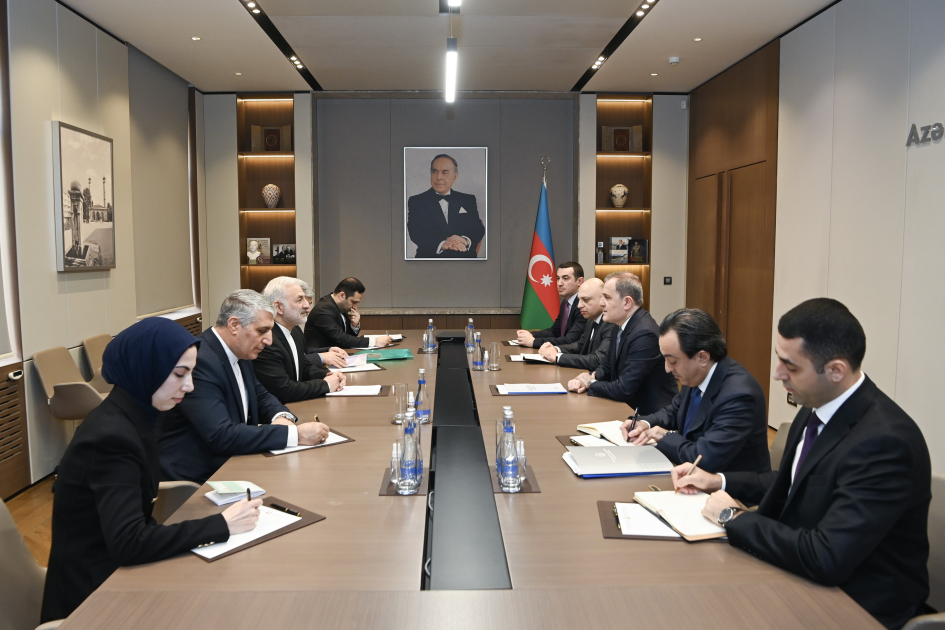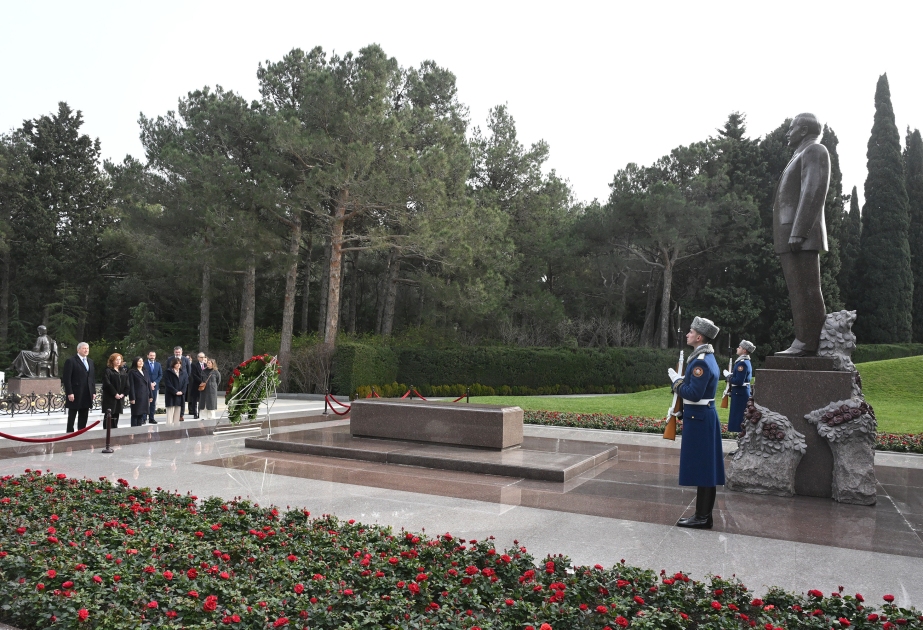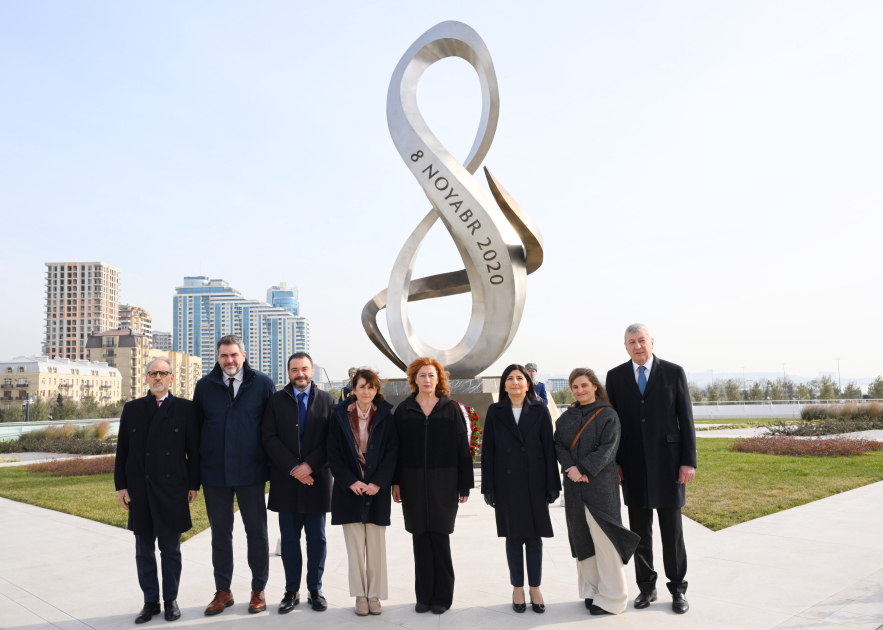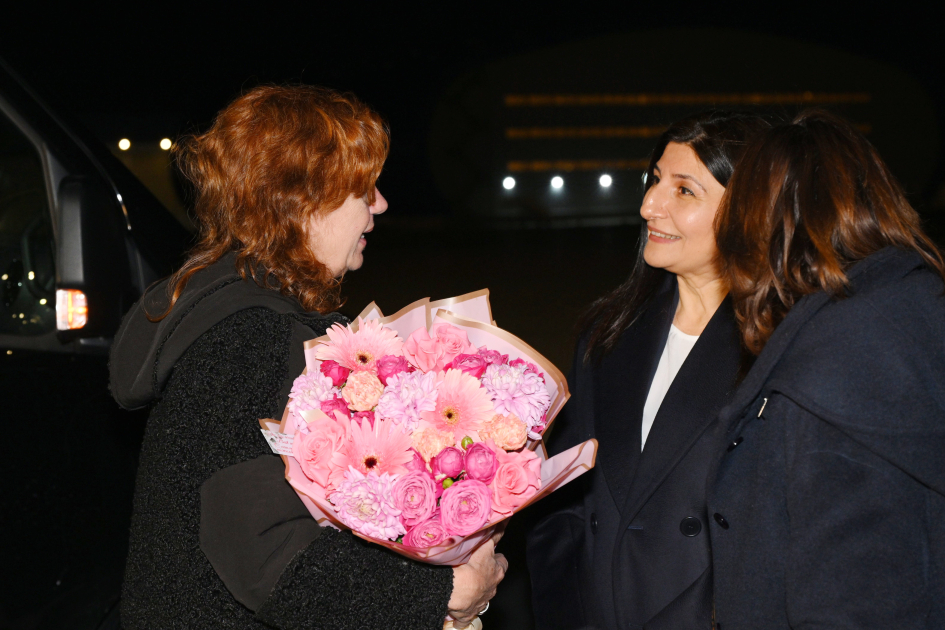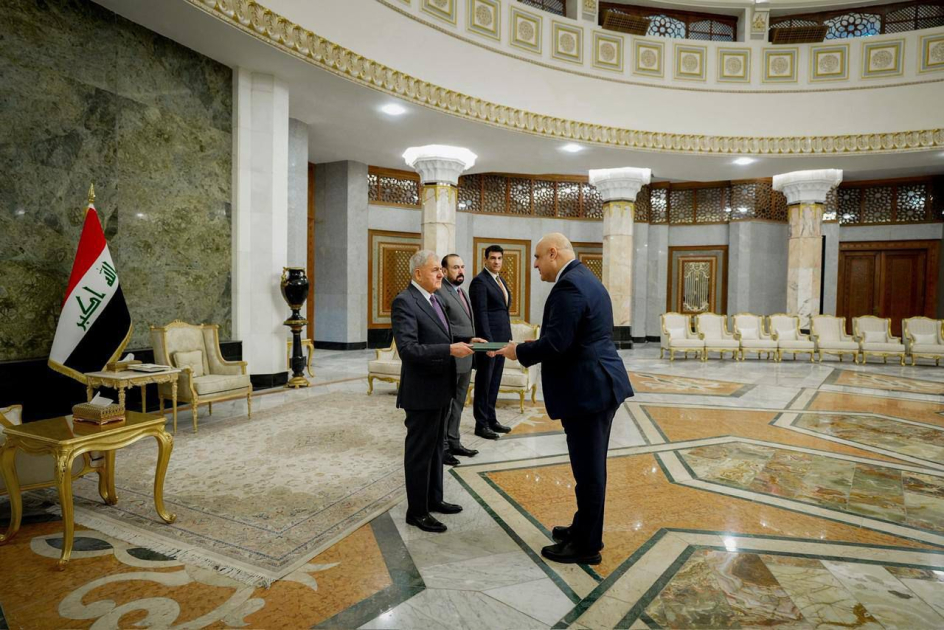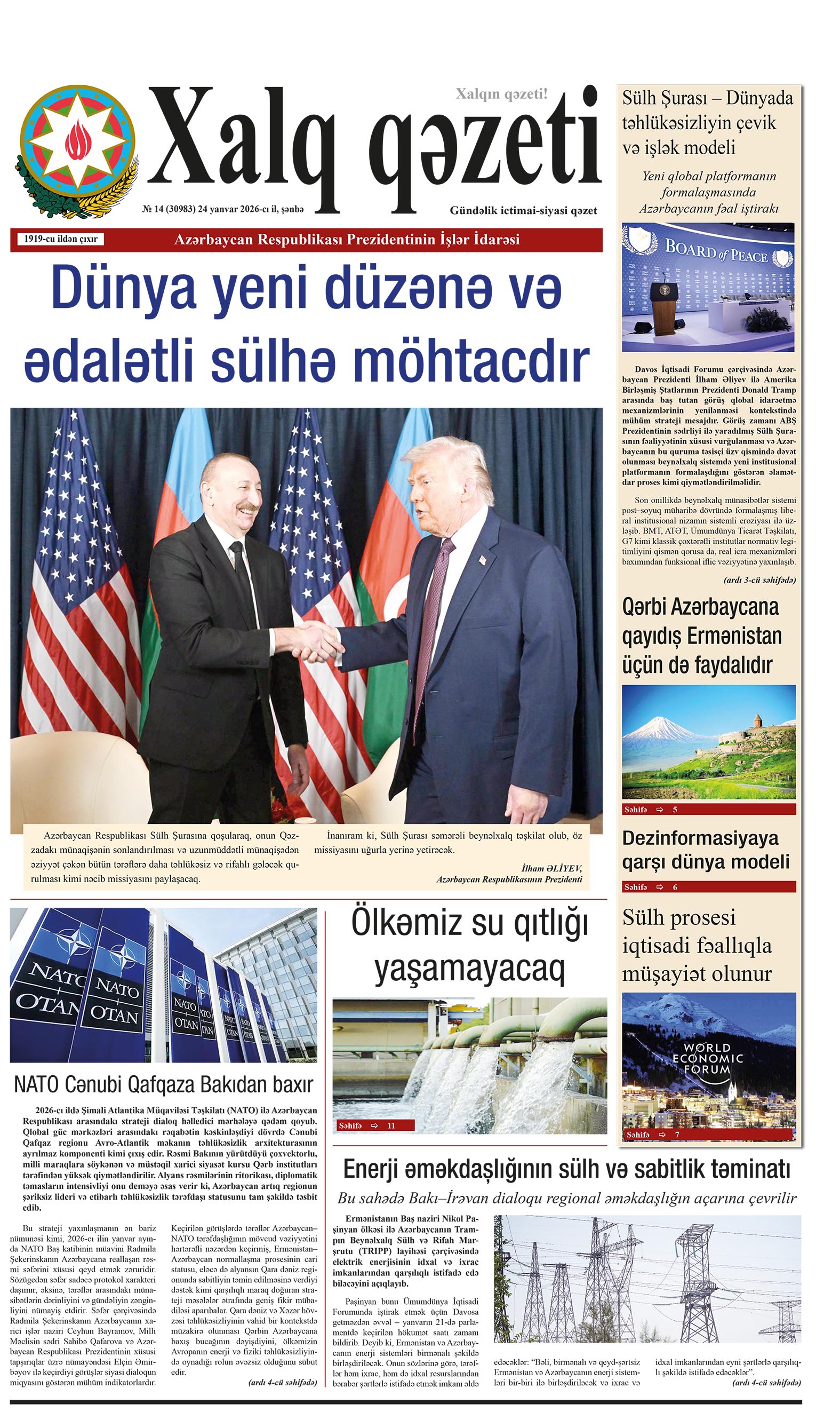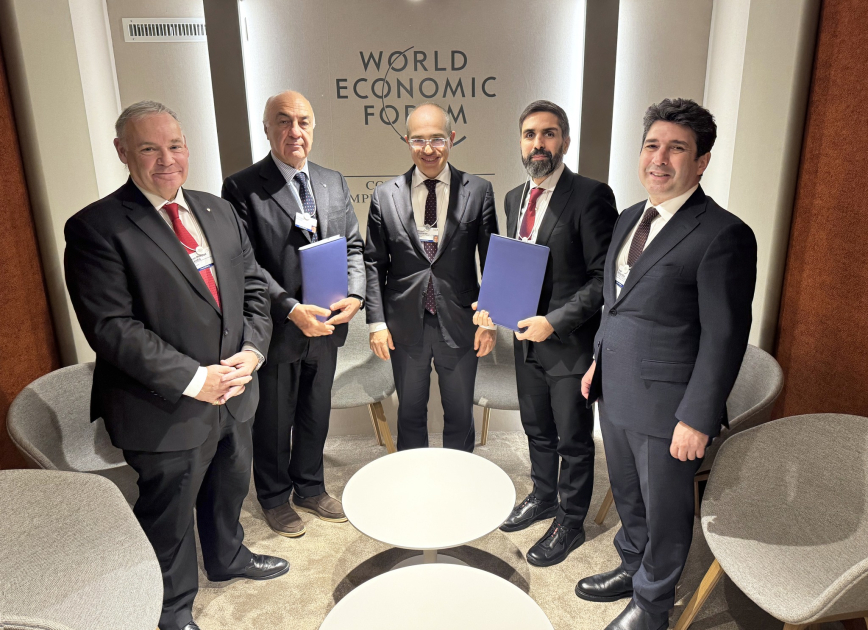The Munich Security Conference has begun. More than 150 world leaders gathered in Germany to discuss global security issues. The conference will discuss a number of topical issues, including the role of Europe in the field of security and defense, a new vision of the global order, the consequences of climate change, technological progress and other issues. Aid to Ukraine will also be discussed at the conference. At the request of the other side, President Ilham Aliyev also went to Munich to discuss issues of concern to the world within the framework of the forum.
On February 16, the Munich Security Conference, which is one of the world's most influential foreign policy and defense forums and celebrates its 60th anniversary this year, began its work. The main discussion document of the forum is the Munich Security report. This year's report is "Lose-Liose?" called "Will Everyone Lose?" can be translated as The content of the document, as the name suggests, is very pessimistic. The agenda includes the global security crisis, armed conflicts, migration issues, climate and the development of new technologies. According to Christoph Hoysgen, head of the conference, the current report "reflects a downward trend in world politics marked by increased geopolitical tensions and economic uncertainty." Countries tend to cooperate less and respect only their own interests, so in most current crises, all parties involved lose and political uncertainty increases.
The report highlights the following points: the Russia-Ukraine war requires Europe to invest funds and efforts in its defense and in support of Ukraine. At the same time, there is growing tension in the Indo-Pacific region, especially the influence of China. In addition, in the report, concerns about the increase in violence in the Middle East, the possibility of an expansion of war in the region, including a series of coups in African countries, the war in Sudan, which has led to a humanitarian crisis, as well as cooperation with the countries of the Global South, new climate policies and the development of technology - competition in strategic technologies (artificial intelligence, semiconductors) have been reflected.
This year, more representatives from the countries of the Global South will participate and discuss with them. Representatives from Latin America and Southeast Asia, regions that have not been sufficiently represented in previous years, are expected to participate. According to the head of the conference, Christoph Heusger, high Chinese officials are also expected to participate. It should be noted that Wang Yi, Foreign Minister of the People's Republic of China, also came to the forum last year. But the organizers did not invite the representatives of the Russian and Iranian authorities to the forum. K. Hoysger explained this by the fact that Russian and Iranian officials did not show serious interest in the negotiations. However, non-governmental organizations from both countries received invitations.
Helping Ukraine will be one of the main topics of the conference. Within the framework of the event, an agreement was signed between Germany and Ukraine on strengthening cooperation in the field of security. The agreement was signed by Ukrainian President Volodymyr Zelensky and German Chancellor Olaf Scholtz. Earlier, a similar agreement was concluded between Ukraine and Great Britain. This is not about security: the agreement between Kiev and London does not force either side to fight for the other. However, it formalizes the provision of military assistance (including supply of arms and equipment, training of military and medical personnel), intelligence sharing, joint countermeasures against cyber threats, and other formats of security cooperation.
The report also states that the European Union and NATO should actively support countries on the path to membership. NATO allies must provide interim bilateral security guarantees, if necessary, until membership. On January 17, French President Emmanuel Macron announced that France will sign a bilateral security guarantee agreement with Ukraine.
President of Azerbaijan Ilham Aliyev is also in Munich and at the request of the conference organizers, he went on a visit to Germany. The invitation of our head of state to such an important event, of course, indicates the growing influence of Azerbaijan. Azerbaijan is a supporter of cooperation in a bilateral format, and our foreign policy is based on the principles of equal relations, mutual respect, goodwill, and non-interference in internal affairs. Our bilateral relations with all countries are based on positive, mutual respect and trust.
S.MƏMMƏDOV
XQ



